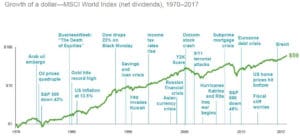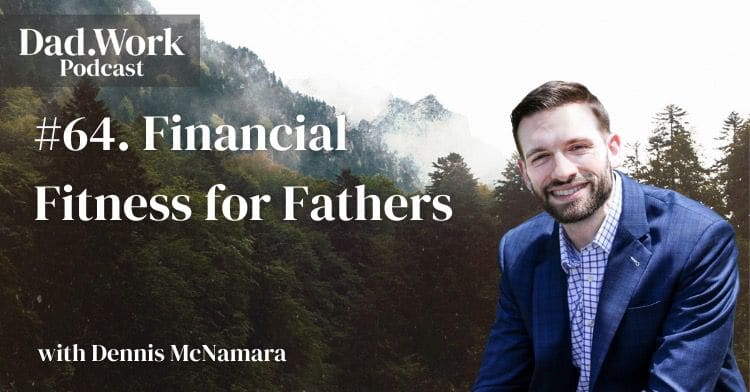Investors need to be prepared for when worlds collide. Collisions – whether they be on a macro level (like war, famine, geopolitical strife etc.) or on the micro level (a professional transition, the loss of a loved one, a disability etc.) – can disorient even the most emotionally stable.
In this piece, a contribution from our March 2022 newsletter, we share our thoughts on what we’re seeing from the 30,000ft, global viewpoint. We also narrow our scope and discuss what you – personal finance investors – can do in light of all the noise, volatility, and events that are beyond your control.
The Macro
Russia-Ukraine:
The events in Ukraine are heartbreaking. We’re certainly not qualified to speak about the political implications of this invasion, but anytime there is aggression and loss of life, it is a tragedy.
From a financial perspective, markets had been bracing for a possible Russian invasion for much of February. Leading up to the invasion there was increased market volatility and a drop in the major indexes.
Oil Ban:
Just yesterday, the Biden administration announced an executive order halting all imports of Russian oil.
Roughly 8% of US imports of crude oil and petroleum products came from Russia in 2021, representing just 1% of Russia’s total oil exports globally. However, some US allies have indicated they may follow our lead with similar embargos.
These oil bans will impact global oil supply and inevitably result in gas prices continuing their steady incline (which have already climbed more than 60% this year).
Macro Movers and Market Impact:
Between the growing Russia-Ukraine crisis, continued inflation, rising commodity/metal prices, and the anticipated Federal Reserve interest rate hikes, it’s anyone’s guess just how much corporate profits (and your portfolios) will be impacted.
The image (below) shows how the market has fared during previous global events.
Our advice: Ignore the Macro
As we look ahead, from a personal finance standpoint, we encourage you to not react emotionally (i.e. buying/selling in a panic) based on macro events that are beyond your control. Reacting to events is, in essence, just another form of market timing.
If you flee the market after a major crisis, you are faced with yet another market timing dilemma: when to reenter. In many cases, the decision to reinvest comes after a rebound has already begun, resulting in missed opportunity (think back to March 2020).
Moving in and out of the market can also incur additional costs and have potential tax implications for investors.
The Micro
Instead, we encourage you to focus on the micro – that is, the levers that are within your control:
- Saving at least 15% (ideally 20%) of income
- Controlling your household expenses
- Maximizing tax savings and tax-efficiency
- Having a globally diversified portfolio for long-term resiliency
Parting Thoughts:
Let us all reflect on how much we do have during these times of crisis. Out of all the hands we could have been dealt, we got ours. We made it through a global pandemic, we have safety/security, and our physiological needs are met (i.e. clean air, food, water, shelter, clothing). Many of us are especially lucky and also have meaningful relationships, connection, and love with friends and family.
To quote Viktor Frankl:
“For the world is in a bad state, but everything will become still worse unless each of us does his best.”
Have gratitude for what you have, ignore what’s beyond your control, and give it your best.





